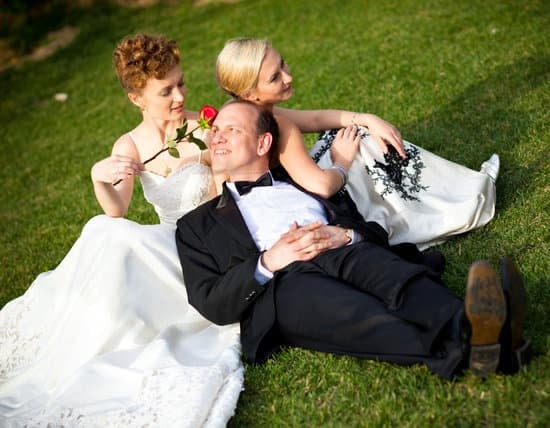Can you attend a wedding after a funeral? This question often arises when faced with the difficult decision of whether to partake in a joyous celebration so soon after experiencing the loss of a loved one. It requires careful consideration of etiquette, cultural and religious beliefs, personal healing, and respect for all involved parties.
Navigating the delicate balance between grief and celebration can be challenging, as attending a wedding immediately following a funeral may pose emotional and logistical challenges. This article will explore the etiquette and considerations surrounding this decision, offering insights into various factors that may impact an individual’s choice.
From understanding the cultural and religious context to addressing personal grief and sensitivity, there are numerous aspects to consider when contemplating attendance at a wedding after attending a funeral. By examining these factors in detail, individuals can better navigate this complex decision while honoring their own needs as well as those of others involved.
Understanding the Cultural and Religious Context
Attending a wedding after a funeral can be a complex decision, and cultural and religious beliefs often play a significant role in shaping one’s choices in these situations. In many cultures and religions, there are specific customs and traditions surrounding bereavement and celebration that can influence whether it is appropriate to attend a wedding shortly after a funeral.
In some cultures, there may be strict guidelines regarding the time frame between attending a funeral and participating in joyous events like weddings. For example, in certain Hindu traditions, there is a period of mourning called “shraddha” that lasts for 13 days after the funeral, during which time it would be considered inappropriate to partake in celebratory occasions like weddings.
Similarly, in traditional Jewish mourning customs, there is typically a week-long period of intense mourning known as shiva, during which mourners are expected to refrain from attending festive gatherings.
Religious considerations also play a pivotal role in determining whether it is acceptable to attend a wedding after experiencing loss at a funeral. For instance, within the Christian faith, individuals may seek guidance from their clergy or religious leaders to understand the spiritual implications of participating in both somber and joyful events in close succession. Therefore, when contemplating attendance at a wedding following a funeral, individuals must carefully reflect on the teachings and practices of their cultural or religious traditions.
It is essential for individuals navigating this decision to take into account not only their personal feelings and circumstances but also the cultural and religious perspectives that shape their understanding of grief and celebration. Ultimately, by embracing empathy and consideration for diverse cultural and religious beliefs regarding mourning and rejoicing, individuals can approach the question of attending a wedding after a funeral with greater sensitivity and understanding.
| Cultural Beliefs | Impact on Decision |
|---|---|
| Hindu Traditions | 13-day mourning period influencing participation in joyful events |
| Jewish Customs | Week-long shiva mourning period affecting attendance at celebrations |
| Christian Teachings | Spiritual guidance sought from clergy regarding participation in somber and joyous occasions |
Personal Grief and Healing
When faced with the significant decision of whether to attend a wedding after a funeral, it is crucial to take into account the emotional implications of such a choice. Grieving individuals may find themselves in a delicate emotional state after experiencing loss at a funeral. The idea of attending a joyous event like a wedding so soon after the funeral can be challenging, as it may seem conflicting with the grieving process.
It is important to recognize that everyone grieves differently, and what might feel right for one person may not be the same for another. Some individuals may find attending a wedding after a funeral to be a source of comfort and healing, as it allows them to celebrate love and life amidst the pain of loss. For others, the emotional weight of grief may make it difficult to participate in festivities so soon after bidding farewell to a loved one.
In some cases, attending a wedding after a funeral can you attend wedding after funeral be an opportunity for individuals to experience moments of joy and celebration, providing them with some respite from their grieving process. However, it is equally valid for those mourning to prioritize their personal healing and well-being by opting out of attending such events.
Ultimately, it is essential for individuals to listen to their own emotions and needs when making decisions about attending weddings following funerals.
| Consideration | Implication |
|---|---|
| Different grieving processes | Individuals may have varying feelings about attending joyful events so soon after experiencing loss at a funeral. |
| Moments of comfort and healing | Attending a wedding post-funeral can provide some individuals with moments of joy and respite. |
| Prioritizing personal well-being | It’s important for mourners to prioritize their own healing and mental health when deciding whether or not to attend weddings following funerals. |
Respect and Sensitivity
When facing the decision of whether to attend a wedding after a funeral, it is crucial to approach the situation with respect and sensitivity towards both the grieving family and the wedding couple. The juxtaposition of these two significant life events can create emotional complexities for everyone involved. It is important to consider the impact of your decision on both parties and navigate this delicate situation with care.
Consideration for the Grieving Family
The loss of a loved one can bring about intense emotions and profound grief for the family members. In the immediate aftermath of a funeral, they may still be mourning and processing their feelings of loss.
It is essential to be mindful of their emotional state when deciding whether to attend a wedding so soon after the funeral. Respecting their need for space and understanding their potential discomfort with attending a celebratory event can guide you in making an empathetic decision.
Understanding the Wedding Couple’s Perspective
On the other hand, the wedding couple will have likely put considerable thought and effort into planning their special day. They anticipate sharing their joyous occasion with loved ones and may hope for your presence at their wedding. Understanding their desire to have friends and family present on this momentous day can also influence your decision-making process.
It is important to recognize that there are conflicting emotions present in this situation, with grief and celebration intersecting. Finding a balance between honoring the grieving family’s feelings while being supportive of the wedding couple’s hopes for your attendance can be challenging but ultimately necessary when considering whether you can attend a wedding after a funeral.
Communicating With the Wedding Couple
When navigating the decision of whether to attend a wedding after a funeral, it is crucial to communicate effectively with the wedding couple about your potential attendance. Here are some tips on how to approach this conversation with sensitivity and understanding:
- Express your condolences: Begin by expressing your condolences for their loss and acknowledging the difficult timing of the events.
- Be honest about your feelings: It is important to be honest with the wedding couple about how you are feeling after experiencing a recent loss. Let them know that you are considering attending but may need some time to process your emotions.
- Ask for their understanding: Request understanding from the wedding couple as you navigate this challenging decision. Communicate that you want to be present for their special day, but also need to prioritize your own emotional well-being.
It is important to remember that open and honest communication can help foster understanding and empathy between all parties involved. By effectively communicating with the wedding couple, you can navigate this delicate situation with grace and compassion.
Ultimately, the decision of whether or not to attend a wedding after a funeral is deeply personal and should be made based on what feels right for you during a difficult time. By approaching the conversation with empathy and understanding, you can ensure that both the grieving family and the wedding couple feel respected and supported in your decision-making process.
Practical Considerations
When considering whether to attend a wedding after a funeral, practical considerations play an important role in the decision-making process. Here are some logistical aspects to take into account when navigating this delicate situation:
- Travel: One of the first things to consider is the logistics of travel. If the funeral and wedding locations are far apart, you may need to factor in the time and cost of transportation. Additionally, if you’re traveling alone, make sure you have a plan for accommodations.
- Attire: Another practical consideration is your attire for both events. It’s crucial to dress appropriately for the funeral and then transition to suitable attire for the wedding. This may require planning and bringing two sets of clothing if the events are on consecutive days.
- Timing: The timing of the funeral and wedding can significantly impact your decision. If the events are close together, it may be emotionally and physically challenging to attend both. Consider whether you will have enough time to process your grief before participating in a joyous occasion like a wedding.
Navigating these practical considerations can be complex, but it’s essential to approach each one with care and sensitivity during this challenging time.
In addition, keep in mind that balancing both events may also depend on your relationship with the individuals involved in each ceremony as well as your own emotional capacity at that moment in time. Ultimately, it’s crucial to prioritize your mental and emotional well-being when making this decision.
Considering these logistical factors alongside emotional readiness can help guide you in determining whether attending a wedding after a funeral is feasible for you at this particular juncture of life.
Etiquette and Protocol
Attending a wedding immediately after attending a funeral can be a delicate matter that requires thoughtful consideration and understanding of the etiquette and protocol involved. In such a situation, it is important to navigate the complexities with grace and sensitivity towards both the grieving family and the wedding couple. Here are some guidelines for navigating the etiquette and protocol of attending a wedding after a funeral to ensure that you approach the situation with respect and consideration.
Appropriate Behavior and Attire
When attending a wedding after a funeral, it is essential to maintain appropriate behavior and demeanor. While it is natural to still be grieving, it is important to participate in the celebrations with respect for the joyous occasion.
It may be helpful to express your condolences to the wedding couple if you were close to them prior to expressing congratulations. Additionally, dressing in attire that is suitable for both solemnity and celebration can show your understanding of the significance of both events.
Considerate Conversation Topics
During the wedding festivities, it may be important to carefully consider conversation topics when interacting with other guests. It is advisable to avoid discussing details or emotions related to the funeral unless invited by others who may want to share their thoughts or feelings about the recent loss. Instead, focus on lighthearted conversation topics such as congratulating the couple, sharing positive memories, or discussing lighter subjects unrelated to grief or loss.
Taking Cues From Others
In situations where you are uncertain about how best to navigate attending a wedding after a funeral, observe how others are conducting themselves. It can be helpful to take cues from those who are closer to either event – whether they are members of the grieving family or part of the wedding party – in order to gauge appropriate behavior and interactions. By being observant and responsive, you can ensure that you carry yourself respectfully during this sensitive time.
In times like these when joy intersects with sorrow, navigating etiquette and protocol becomes crucial in ensuring that all parties involved feel supported and understood. With respectful behavior, considerate conversation topics, and an awareness of social cues, attending a wedding after a funeral can be approached thoughtfully while preserving emotional sensitivity.
Conclusion
In conclusion, the decision to attend a wedding after a funeral is a complex and deeply personal one that requires careful consideration of the cultural, emotional, and practical factors involved. It is important to acknowledge that different cultural and religious beliefs may influence the appropriateness of attending a joyous event so soon after experiencing loss.
Personal grief and healing also play a significant role in this decision, as individuals may need time and space to process their emotions before participating in celebratory events.
Respect and sensitivity are paramount when navigating this delicate situation. It is crucial to be mindful of the feelings of both the grieving family and the wedding couple, as well as communicate effectively with the couple about your potential attendance after a funeral. Additionally, practical considerations such as travel arrangements, appropriate attire, and timing should be taken into account when making this decision.
Ultimately, there is no one-size-fits-all answer to whether one can attend a wedding after a funeral. Every individual’s circumstances and feelings are unique, and it is important for others to respect their decision-making process during periods of grief and celebration. By approaching this decision with empathy, understanding, and open communication, individuals can navigate the complexities of attending a wedding after a funeral with grace and consideration for all involved.
Frequently Asked Questions
How Long Can You Not Attend a Wedding After a Funeral?
After a funeral, it’s generally considered respectful to wait at least a few weeks before attending a wedding. The specific time frame can vary based on cultural and personal preferences, but a good rule of thumb is to give yourself and the grieving family some space before participating in a celebratory event.
Can You Attend Funeral After Getting Married?
There is no hard and fast rule about attending a funeral after getting married. If you have a prior commitment, such as being part of the wedding party or having already paid for travel arrangements, it’s generally acceptable to attend the funeral after getting married.
However, it’s important to communicate with both families and be sensitive to their needs during this emotional time.
Why Can’t You Attend Wedding Within 3 Months?
Attending a wedding within 3 months of a funeral is often discouraged because of the conflicting emotions involved. The joyous celebration of a wedding may feel inappropriate or uncomfortable for those who are still grieving from the loss of a loved one.
It’s important to respect the mourning process and allow sufficient time for healing before partaking in festive events like weddings.

I have been involved in marriages for over 20 years helping couples and singles understand more about them.





